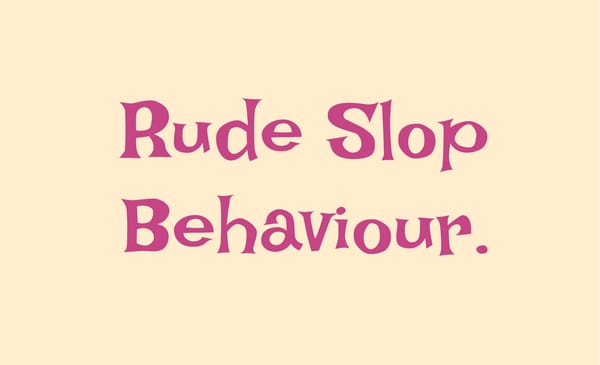The Internal Lever
Advice I would have given myself 10 years ago.
A lot of people don't attend to "the internal lever" enough when dealing with life. This lever exists in you and not out in the world. It's easier to alter your inner world than it is to manipulate the world out there (even if neither are easy).
- Can you find more flavour in the food you are already eating?
- Can you make the same old chore of washing dishes enjoyable?
- Can you "find happiness" with all that you already have today?
- Can you be at ease without needing to rid life of all your problems? <!--more--> I used to think the way to improve my quality of life is to define a goal state that I think I want to get to, and strive and strive to manipulate my world so that I can achieve said goal state. There is value in doing this, but it's actually quite a waste method to really feel great about life. This is because:
- Life is a messy complex uncertain dynamic system that's hard to influence—any attempt to control this system will cause chain reactions that will never quite achieve what you want.
- Problems are an endless stream—it's not possible to inbox zero your life.
- Every solution brings a new set of problems with it.
- Last, but not the least—actually achieving the goal state is almost always not as cool as you think it is. You're already over it and onto the next thing by the time you get to this goal state.
This is why pushing, solving, rallying and striving harder against the world makes things more frustrating. It's elegant irony.
The more elusive, effective lever is your relationship to your current life state, that is, the frame in which you view every interaction with the world. It's possible to reprogram your "world frame" to see the same things in better ways. This is a far more tractable problem to solve—you have more control over your frame than you have over the world that's out there.
This is not to say don't solve problems, or don't try to change the world. Let me reframe that.
Solve problems and change the world—not because there is satisfaction at the end of conquering it all—do it because the process of solving problems and trying to change the world is fun. The outcome will be whatever it will be.
Appendix: other related frames
This is old hat ancient wisdom. The way I phrased it above would have got through to me from a decade ago, hopefully.
But maybe you'll like how the ancients say it
(these are straight rips from this wikipedia article) https://en.wikipedia.org/wiki/Serenity_Prayer
Epictetus, sometime between 50-100 AD:
Make the best use of what is in your power, and take the rest as it happens. Some things are up to us and some things are not up to us. Our opinions are up to us, and our impulses, desires, aversions—in short, whatever is our own doing. Our bodies are not up to us, nor are our possessions, our reputations, or our public offices, or, that is, whatever is not our own doing.
Shantideva, 8th BC apparently:
If there's a remedy when trouble strikes, What reason is there for dejection? And if there is no help for it, What use is there in being glum?
Alcoholics Anonymous, circa the decade someone's grandmother was born:
God, grant me the serenity to accept the things I cannot change, Courage to change the things I can, and Wisdom to know the difference.



